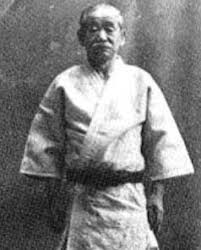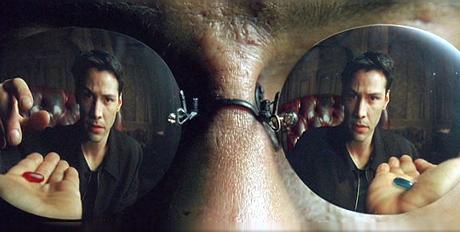Kanō became a student in 1870 in the 成達書塾 in Ryōkoku, which is pretty much a school for learning how to write. His teacher was Ubukata Keidō. He also got acquainted there with the Chinese Classics. If you do not know what the “Chinese Classics” are, they are 4 main neoconfucian writings, by resp. Ta Hsueh, Lung Yu, and Chung Yung, and the Book of Mengtzu, with in addition what is referred to as the Five Canonic Writings (I-Ching, Ch’un Ch’iu, Li Chi, Shih Ching, and Shu Ching).
Apparently, Kanō was an exemplary student. Ubukata-sensei himself was strongly influenced by Western thought and tried to convey this on to Kanō. Given Kanō’s young and inexperienced age, a first step to do was to recommend that he’d study English. He was sent to Mitsukuri Shūhei to do so.
In 1873, Kanō enrolled in the Iku’ei Gijuku, a private junior college. I think it may have been affiliated or have some link with Keiō University, but I am not sure of that. This school was a sort of boarding school, with students also spending the night there. I believe they employed foreigners, and courses were interestingly taught not in Japanese, but in English and German.
However, Kanō did not stay there and left after just a year, and in 1874 entered the Tōkyō Gaikokugo Gakkō 東京外国語学校 (Tōkyō School of Foreign Languages). In 1875, Kanō was accepted in the Kaisei Gakkō, and entered the Faculty of Letters, with an emphasis on Politics and Economy. He graduated in July of 1881 (Meiji 14, 7th month) with a Bachelor’s Degree of Letters or Bungakushi 文学士.
Tōkyō University or Tōdai did not exist in 1875, and was only created in 1877; the old name of Imperial University 帝國大學 Teikoku daigaku was only given in 1886, five years after Kanō graduated, and its name was changed again in 1897 into Tōkyō Imperial University 東京帝國大學 Tōkyō Teikoku daigaku (see: http://www.u-tokyo.ac.jp/gen03/b03_02_e.html)
After his graduation in July of 1881, he returned to the same Faculty of Letters to focus on Aesthetics and Moral Philosophy, in what thus was graduate study (or as they call it in England ‘Postgraduate). He finished this study in July of 1882. It is there where he also studied under Ernest F. Fennolosa.
I do not know the exact name of this graduate study, assuming that it actually led to a new degree and not just to “having taken some supplemental courses”. I doubt that a single year of study above a Bachelor’s Degree would by any serious person be regarded as a doctorate, and moreover, like Jon Z already pointed out, the Doctoral or Hakase 博士 system did not even exist in Japan at that time.

Source is Hasegawa Junzō: Kanō Jigorō no kyōiku to shisō. Meiji Shō’in, Tōkyō, 1981.
I have mentioned that I have some memory of an event in March of 1924, which may or may not have been an awarding of some doctorate, but I may be wrong, and cannot find the details back.
In any case, I have argued before that a part of the biography of Kanō as it has been spread in the West is fake. I want to make it clear that I am not saying, suggesting, or surmising at all that Kanō Jigorō himself is in anyway responsible for this. In my view as is often the case with hagiographies rather than biographies, convenient ‘errors’ are made to add importance, and those in the known of it, ‘condone’ these errors to make things look more impressive than they really are.
I have never seen any document where Kanō Jigorō signed with ‘Doctor’ or its Japanese equivalent 博士 hakase. In fact, I don’t think that I have ever seen even any Japanese document written by others that do so either.

Let me point out that similarly there exist many W-E-S-T-E-R-N documents that equally bestow a rank of 10th or 12th dan on Kanō, something again of which no foundation exist. I have never seen a single Japanese document that assigns any dan-rank whatsoever to Kanō, just like no Japanese document assigns any dan-rank to Ueshiba. Dan-ranks are for ‘students’, and the creator of style typically does not hold a rank in his own style.
This goes on and on. Even this summer I heard Murata refer to the Kōdōkan's jūdō instructors as ‘professors’ and the foreigners coming there as ‘students’. This is a load of bull crap. The Kōdōkan has never been assigned any academic authority by Monbushō to issue academic degrees or ranks. People teaching at the Kōdōkan are not ‘professors’ but ordinary sports instructors just like baseball coach is. They are typically people who have good practical knowledge about technique and that is it. Don’t try to sit down with them and explore the writings or philosophy of Kanō or they go blank. There are few exceptions, such as Daigo, who simply stands out and is very well-read. Also Komata is a professor, and this at Tsukuba University, but the majority are not. You can clearly see this from the young Kodokan-sensei; some are fighters like Kōji Komuro, others have pretty basic other jobs or education. With much older sensei we often do not know, since they were around long before we were born, and we have such great respect for someone with ranks of 8th or higher that we are all too glad to bestow further mythic proportions to their background. The truth is typically different.

Typically, becoming a professor is no sinecure, and today invariably requires holding a university doctorate, ample publications in peer-reviewed journals, and other scientific accomplishments, such as previous guest-professorships at other foreign universities, conference presentations at international conferences, etc. Some less serious schools in Japan on occasions may still accept people with a Masters as instructors and assistant professors. These issues are not just ‘innocent’ mistakes. The Japanese know very well that an ‘instructor’ 師 or 指南番or lecturer 専任講師is not a ‘professor’ 大学教授. If they wouldn’t, then why would they have completely different terms for ‘professor’ and ‘instructor’ and ‘lecturer’ just like we do in English ?
The Kōdōkan has known for years that part of its history is fake. Be serious. When jūdō was created in 1882, Kanō was only 22 years. How many of you would take serious a 22-year old if referred to as shihan and having created his own style. Kanō was erudite, and Kanō was intelligent, but for Christ’s sake, he was no Mozart or child prodigy.
While today 60- and 70-year old people are struggling to understand what Itsutsu-no-kata is about, yet the Kōdōkan would like us to believe that Kanō supposedly would have created it himself at just 27 years of age ? Right. It is known that Kanō in 1932 when he was 72 years of age was still struggling with this kata, as admitted by himself during a visit to London, a statement notoriously absent from any Kōdōkan documents, just like the things Kanō failed in are notoriously absent. Why would he be struggling with something that he would have shaken out of his sleeve half a century earlier ? There does not exist a single piece of writing where Kanō states that he would have created Itsutsu. The only thing he once said is that the first two techniques came from Kitō-ryū (which in fact is wrong) and that the last three would have been original. The Kōdōkan for years has conveniently explained this as that “Kanō himself would have taken these two techniques from Kitō-ryū and created the last three himself”, which is a very, very liberal interpretation of the previous statement. Itsutsu-no-kata comes from Tenjin Shinyō-ryū where it is one of the most advanced exercises. Kanō had barely practiced this last part and by 1932 even far less. He didn’t exactly struggle with jū-no-kata. Why ? Because jū-no-kata he did actually create. The two ones he struggled with were Itsutsu- and Koshiki-no-kata both which he did not create, but imported from the two parent schools of jūdō.

What is the origin of Kanō Jigorō’s ‘Dr.’ predicate ? Real ? Fantasy ? The debate here so far, shows that we can’t say for certain, but there is little evidence that this ‘Dr.’ title originated in Japan. One speculation is that in the early century no one in the West was familiar with the promotion system of jūdō; in fact, very few were familiar with it in Japan. There exists at least one document where Kanō is trying to explain the system by comparing it with ordinary academic study, linking certain jūdō black belt rank levels to some sort of “Bachelor’s Degree in Jūdō”, Jūdō ranks such as 6th dan and upwards as Master’s Degree in Jūdō level, and the highest ranks of 10th dan as similar to PhD level. The question can be raised whether this comparison was taken literally by enthusiastic Western audiences and back-extrapolated suggesting that as ‘shihan’ Kanō therefore would have been a “Dr. in jūdō”. As cute as this may sound, academically speaking it is complete nonsense.
If in the end, the ‘Dr.’ is real and was indeed a 1924 Doctor honoris causa, then the logical follow-up question is: Which university bestowed it and when ? Honorary doctorates are not particularly difficult to trace, as such things are typically public events and information, and not protected by privacy. Many universities even have the names of honorary doctorate holders published on their website. Most people, even the most modest ones, usually have it mentioned in their biography, since getting a honorary doctorate is a quite remarkable honor, and are all too keen to specify which institution bestowed it and in what year. In that respect, it is striking that no biography of Kanō mentions any such details, which adds doubt to such claim. If it would be a foreign university, then I think that there are not too many candidates. I can think of Berlin, for example, but not too many others.
Dealing with these things in a proper way is a challenge. If you raise such concerns regarding the person of Kanō, you will often be called ‘disrespectful’ and even may become “persona non grata”. Did I already say that Yukimitsu Kanō hasn’t spoken to me for years ? Fact is, who is really served by perpetuating these nonsense ? As well-meaning as the Kōdōkan and Japan may be, their reluctance to correcting anything towards the past out of fear that it may cause embarrassment or perceived as disrespect, may sound noble, but is in the end not workable as one day it will come back and bit the Kōdōkan in the ass.
In the mean time, the saga continues …
Orginal Thread on JudoForum








Bravo! kickin ass and taking names -- excellent debunking -- i like it!-- Chicori's judo threads are always a treat and i have been a fan of his for years--
ReplyDeleteWithout going into long debate. My immediate thought would be the title of "Professor" in judo would be similar to the ThD in religion. A holder of a ThD could certainly be referred to as Doctor, however the honor bestowed is purely and only as credible as the organization granting it along with those who choose to recognize it.
ReplyDeleteThant
I had occasion to visit the excellent Tsukuba university in Japan, quite famous as a sporting university, it is the modern day amalgamation of various schools of education and in the history section/museum there is quite a bit about Kano. Its not unreasonable, esp. in a shinto based veneration of elders I think to refer to someone as Professor, as a kind of westernising of old Japan. But take the point about its misuse in the martial arts in the west.
ReplyDeleteMind you people with medical degrees claim to be doctors, and not to be out done so to do the dentists, vets, chiros and even the homeopaths ;)